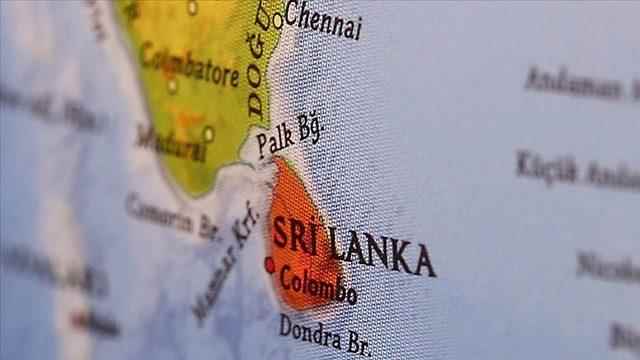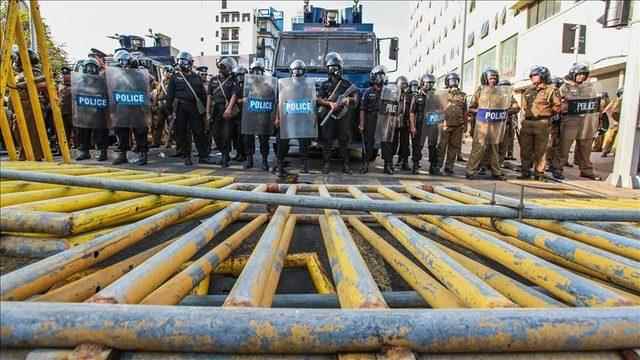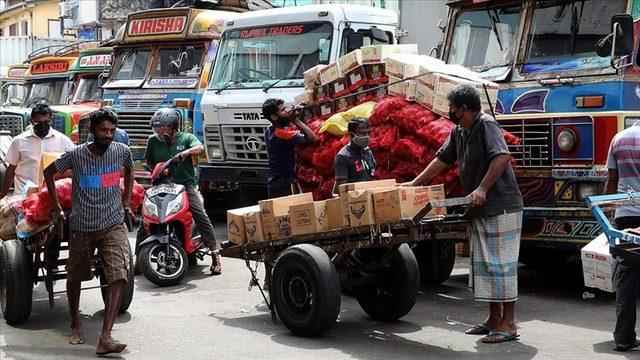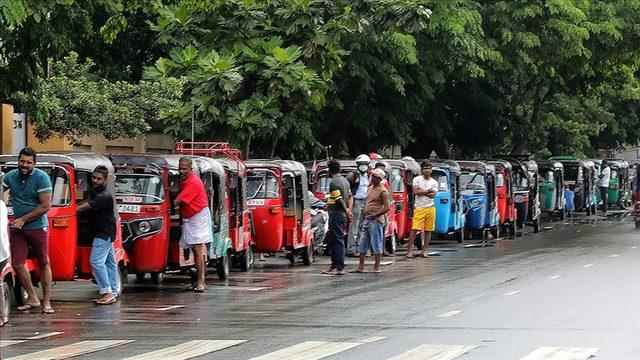Sri Lanka, which is facing the biggest economic crisis in its history, has decided to close schools for another week due to fuel shortage.
Sri Lanka’s Ministry of Public Administration announced that education was suspended for one more week in schools that were closed on May 20.
While it is expected that fuel will be delivered to the country within a week, schools are expected to open on July 11 unless otherwise.
The Ministry of Energy announced that the small amount of fuel stock on hand is used for emergency and necessary situations such as public transportation, food transportation and health services.
The Ministry shared the information that they bought 800 million dollars of fuel, that 40 thousand metric tons of diesel fuel will arrive on July 8, and gasoline shipments will arrive on July 22.
SRI LANKA SEEKS RESOURCES FOR EMERGENCY FUEL PAYMENT
“Money is very difficult to find,” said Energy Minister Kanchana Wijesekera, pointing out that they are seeking funding for an emergency fuel payment of $687 million. said.
Wijesekera pointed out that an average of 600 million dollars of foreign currency came from abroad, but this figure decreased to 318 million dollars in June, and called for approximately 2 million Sri Lankan citizens abroad to send foreign currency to the country.
Authorities announced that due to the fuel shortage, there will be a power cut of up to 3 hours a day across the country.

SITUATION IN SRI LANKA
The people in the country, which is facing the biggest economic crisis in its history, intensified their protests at the end of March after the power cuts found 13 hours a day.
There was a clash between the demonstrators gathered around the Prime Minister’s Office and the supporters of the government on May 9, and military units were called to duty in the capital Colombo.
After increasing pressure from the opposition, Prime Minister Mahinda Rajapaksa resigned on 9 May and the cabinet was dissolved.
President Gotabaya Rajapaksa appointed Ranil Wickremesinghe, who previously served as prime minister for three terms, as prime minister on 12 May.
After the violence, a nationwide curfew was declared, and the government ordered that anyone who harmed public property or others during the protests be shot at.

8 PEOPLE LOSE LIVES
In the protests that spread across the country, 8 people, including the ruling party deputy and 2 police officers, lost their lives and 250 people were injured.
Sri Lankans are currently struggling with fuel shortages, power cuts and rising food and transport prices.
Prime Minister Wickremesinghe announced on June 22 that the country’s economy had collapsed and they could not even pay for oil imports.

The country, which has declared that it will not be able to pay its foreign debt of 7 billion dollars, which is due this year, without waiting for the result of negotiations on a bailout package with the International Monetary Fund, has to pay an average of 5 billion dollars annually until 2026. (AA)
